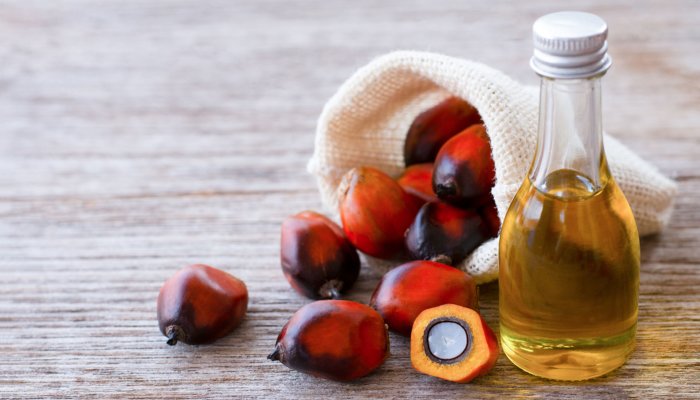[ad_1]

Now for the not-so-good information. Palm oil is particularly wealthy in palmitic acid, a saturated fatty acid that is been linked to elevated threat of coronary heart illness7 in some research. Nevertheless, outcomes have been blended and controversial on the oil’s influence on well being8 and coronary heart well being particularly9. One overview revealed in Frontiers in Physiology10 in 2017 means that it isn’t palmitic acid itself that is problematic however the ratio of palmitic acid to polyunsaturated fatty acids (PUFAS) like omega-3s that you simply devour.
For the file, lower than 10% of Individuals get sufficient omega-3s, and in keeping with Ashley Jordan Ferira, Ph.D., RDN, mbg’s director of scientific affairs, “Now we have a nationwide omega-3 hole that must be addressed ASAP,” she beforehand instructed mbg.
And as we already talked about, the World Journal of Cardiology has taken a fairly agency stance that there is no profit to changing palm oil with unsaturated fat so long as you are consuming a nutritionally balanced food regimen in any other case (aka sufficient omega-3s and different vital vitamins).
All that stated, the largest draw back of palm oil really goes past your well being. Many aged-growth forests are cleared away for palm oil plantations, most notably in Southeast Asia. As palm oil growers race to broaden their land space to maintain up with palm demand, they minimize down bushes, destroying wildlife habitats and harming a worthwhile carbon storage sink. Palm oil sourcing is a risk to the survival of orangutans, and it additionally threatens Sumatran elephants, rhinos, tigers, and the livelihoods of local people members.
It’s attainable to search out sustainable palm oil, however it’s important to be further diligent since cheaper variations of the oil are sometimes present in packaged meals and private care merchandise. In case you do buy palm oil, be certain that it is RSPO-certified deforestation-free palm.
[ad_2]









Leave a Reply